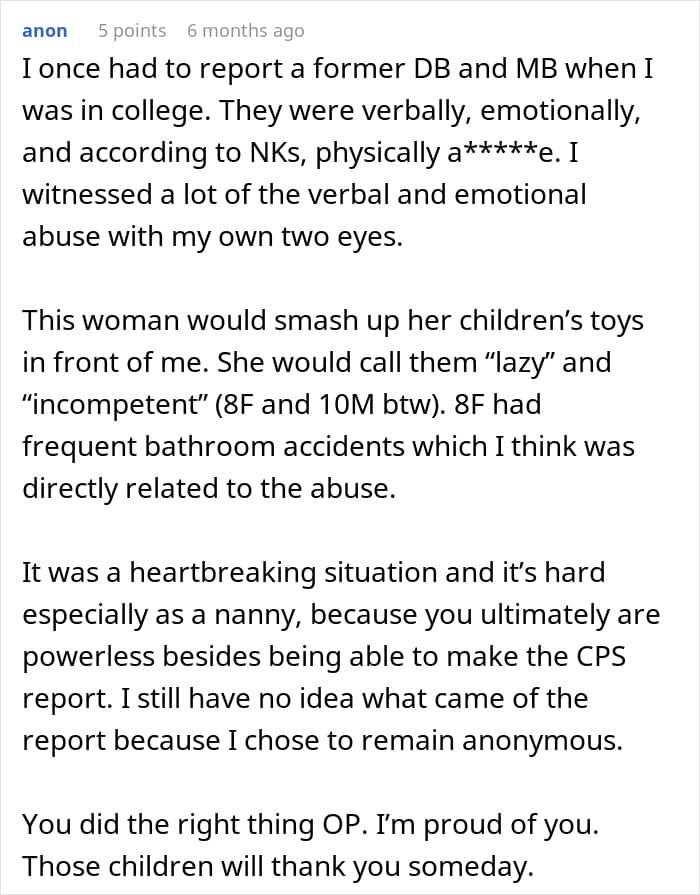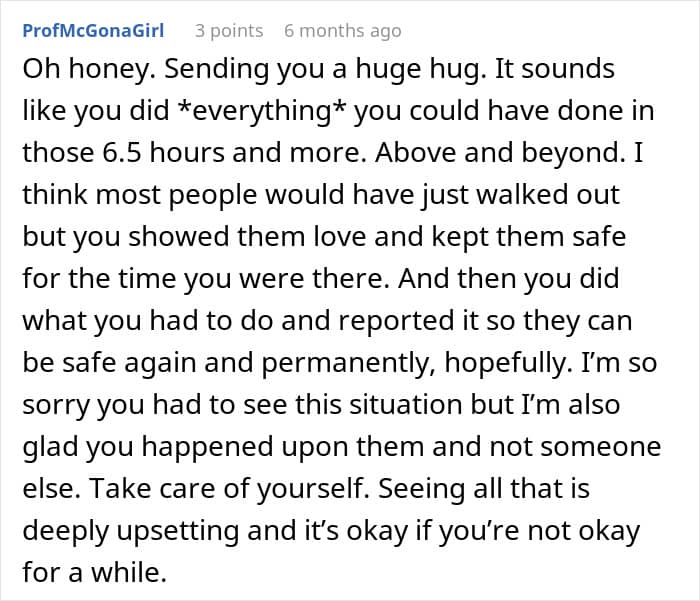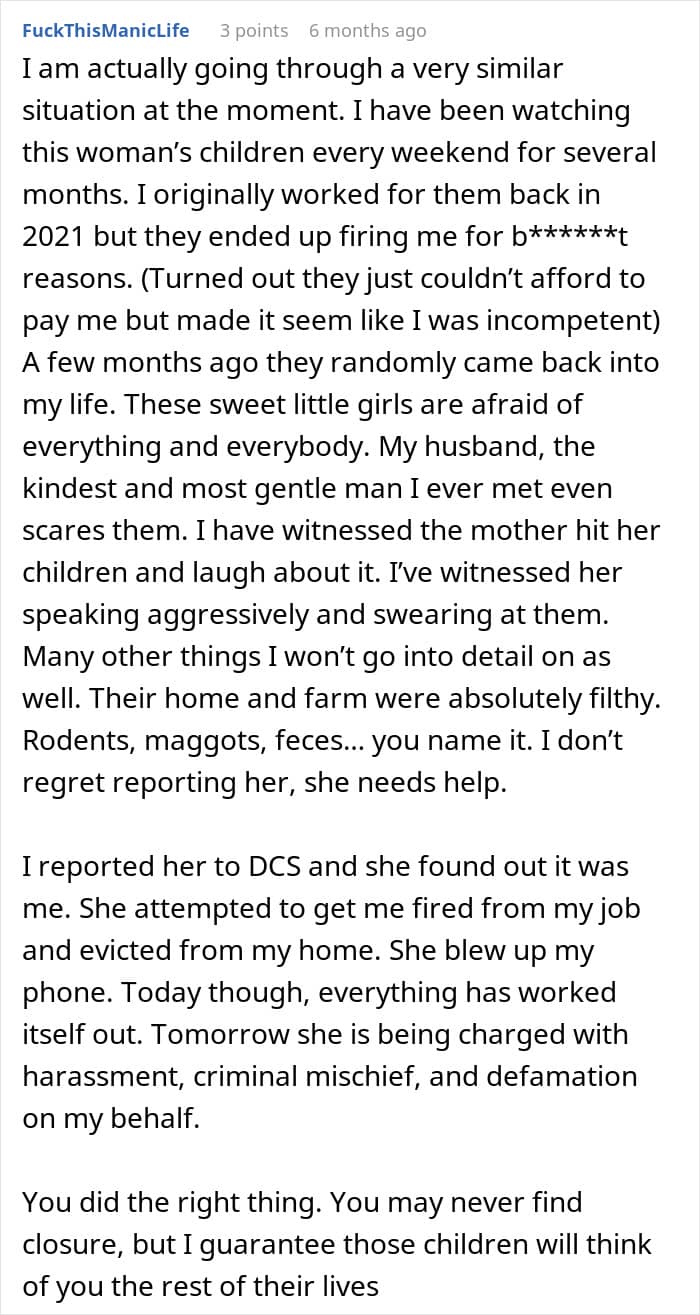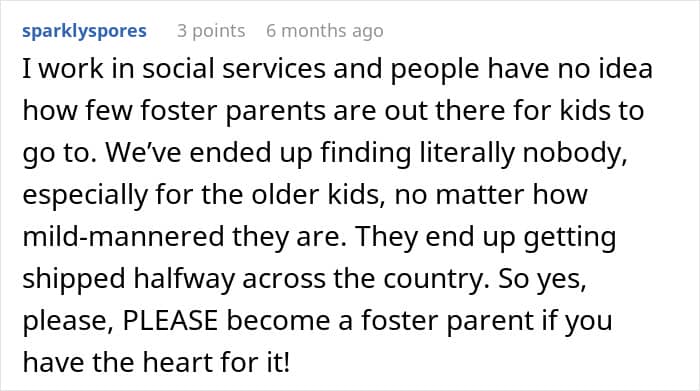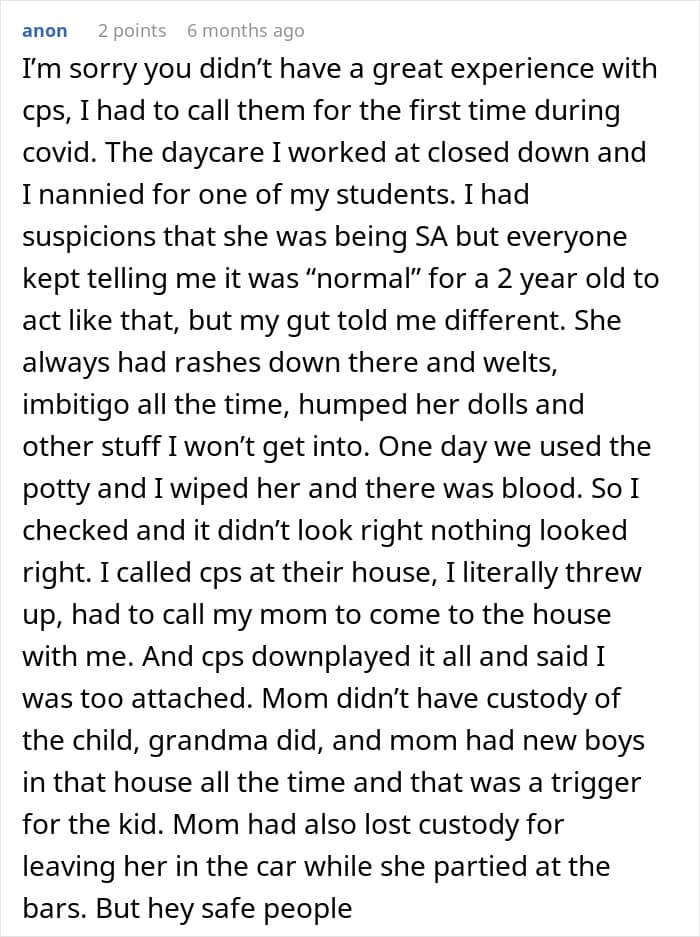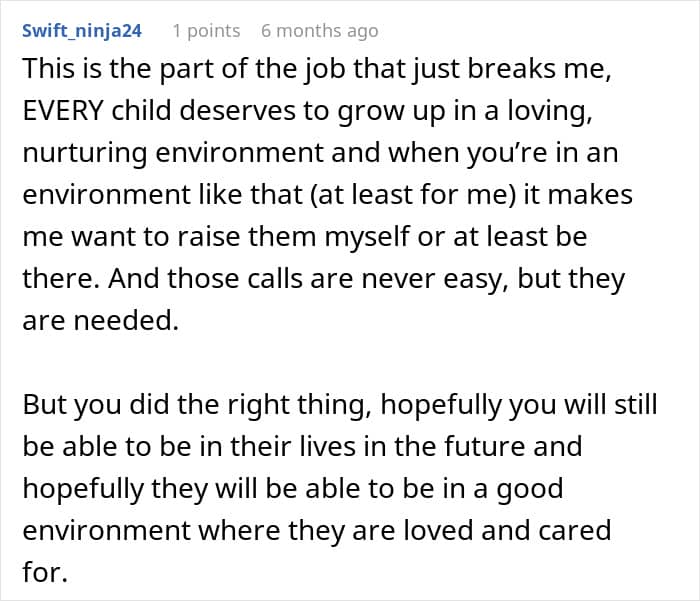When your job is to care for children, you’re not just keeping them entertained, you’re also responsible for their safety and well-being.
For this Redditor, that responsibility led to something he never imagined doing.
He had been hired to nanny four young children, but what he walked into was heartbreaking. The apartment was filthy, and there were no toys or books, no set bedtime, and the kids barely knew how to socialize. It was overwhelming.
The next day, he called CPS. And now, he can’t stop thinking about those little ones.
RELATED:The man was hired as a nanny to take care of four young children
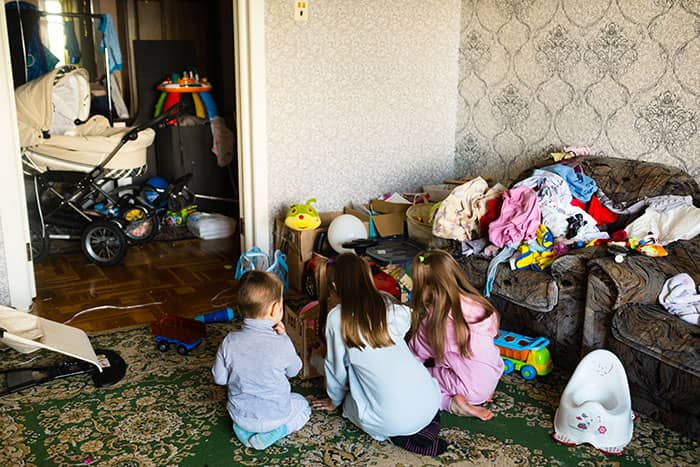
But what he saw when he arrived was so disturbing that he felt compelled to call CPS
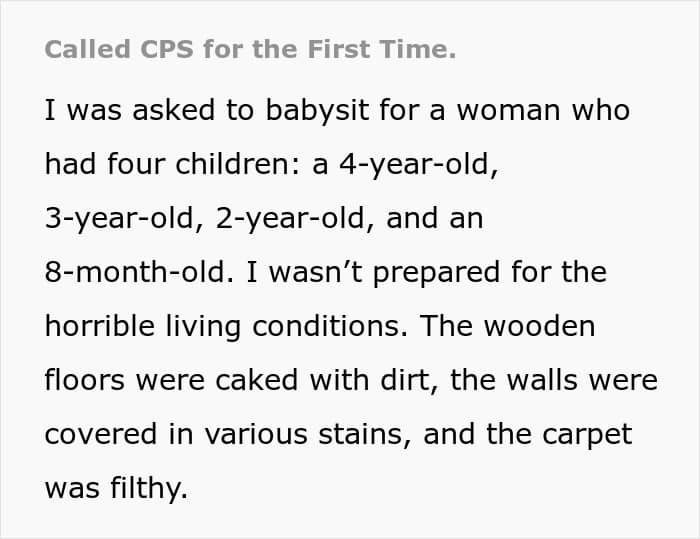
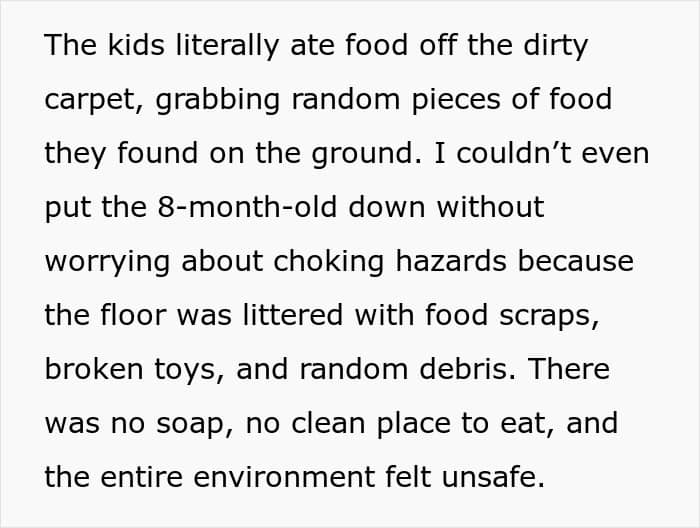
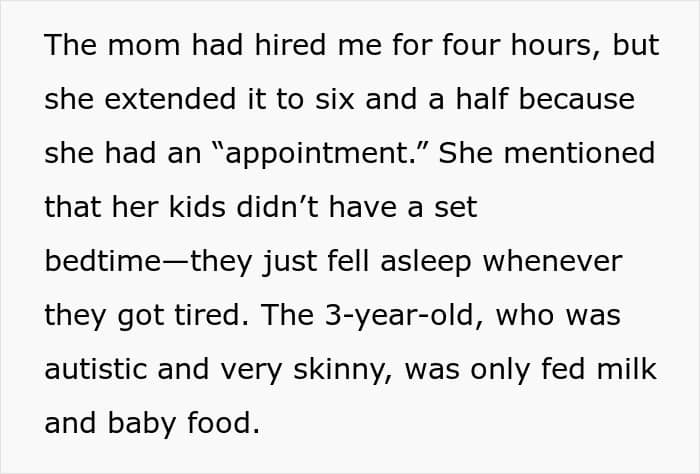
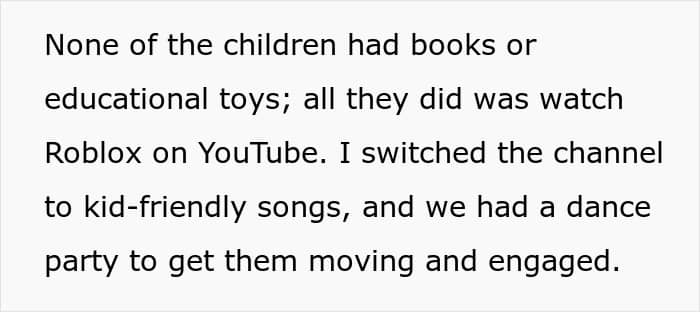
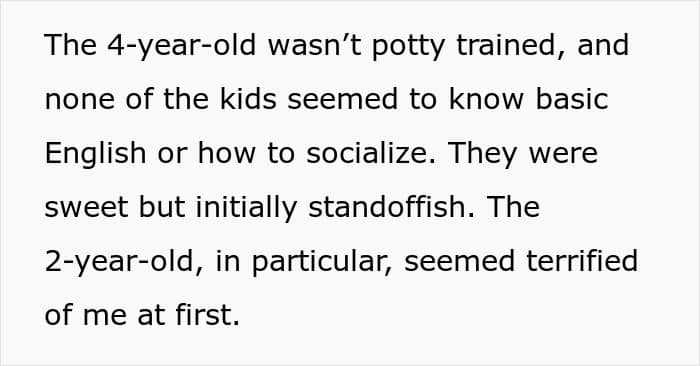

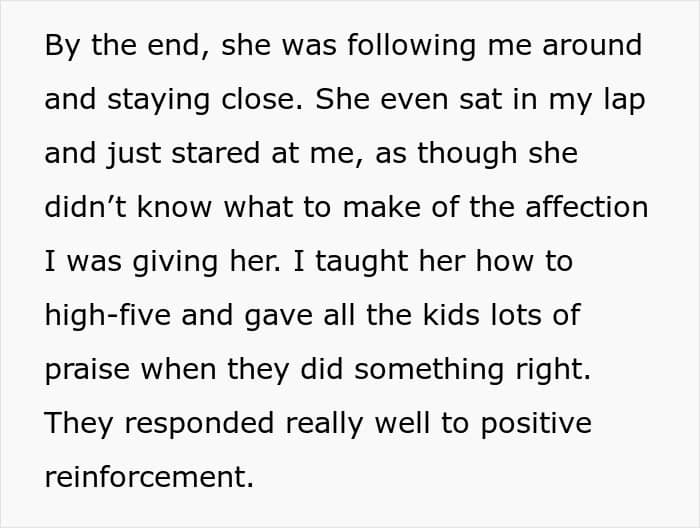

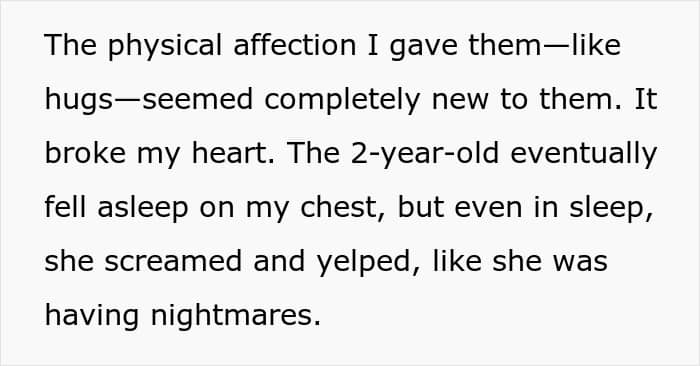
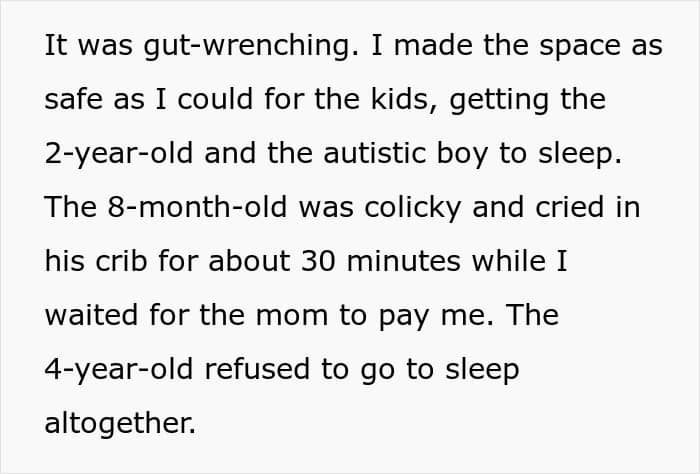
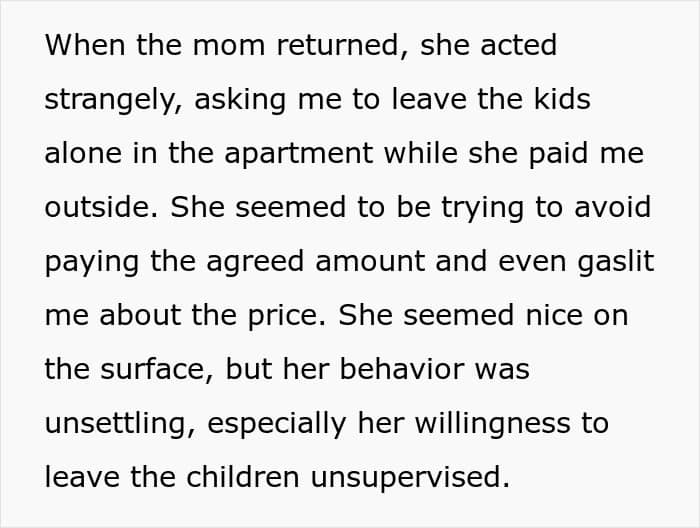

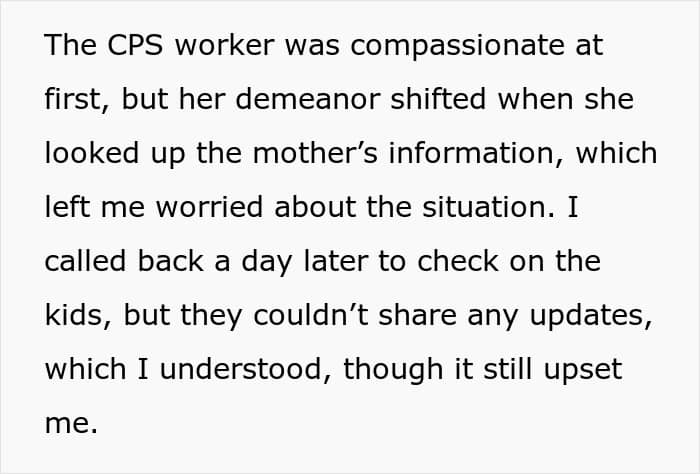
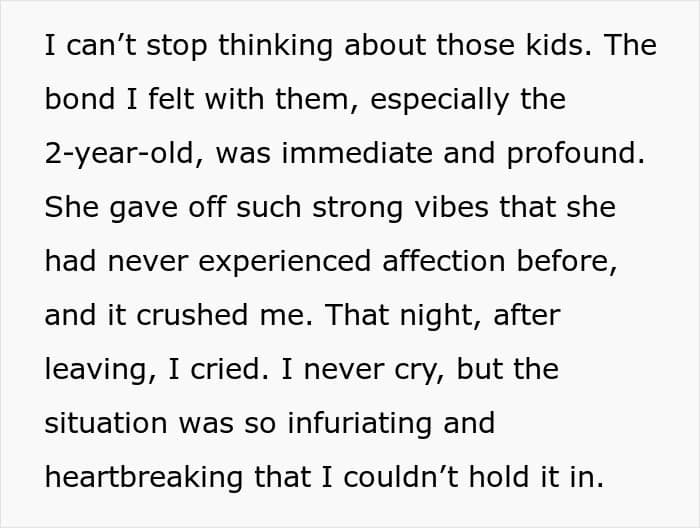
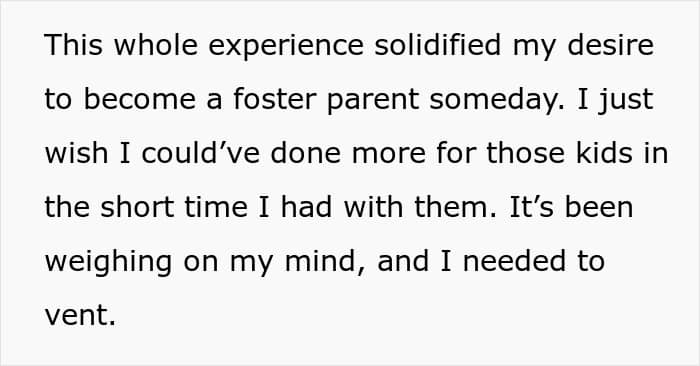
In some jurisdictions, nannies are legally required to report child neglect
Witnessing a child potentially being mistreated is, by nature, incredibly distressing.
But how you respond can be complicated. Reporting a caregiver or contacting authorities is not only serious, but it can also bring a heavy emotional toll, especially when it feels like you’re intervening in someone else’s family.
Figuring out what to do in that moment isn’t always a purely moral choice. In some cases, it’s also a legal obligation.
According to the US Nanny Association, in 47 U.S. states, certain professionals are classified as mandated reporters.
While the rules vary slightly by state, this typically means that individuals in roles that involve direct contact with children—such as teachers, medical professionals, social workers, and law enforcement—are legally required to report suspected cases of child abuse or neglect, even if they’re unsure of the full picture.
Because nannies also work closely with children, this legal obligation can apply to them, too.
In states like Indiana, New Jersey, and Wyoming, the law goes even further, requiring all individuals, regardless of profession, to report suspected mistreatment.
Having the law behind you can make it easier to act when fear or uncertainty might otherwise get in the way, says Ronald Mah, Ph.D., a California-based Licensed Marriage & Family Therapist, author, and former child development center owner.
“This issue with viewing the obligation to report as solely a moral dilemma is that legal and ethical mandates help people push through the fear and anxiety surrounding making a report,” he told Nanny Magazine.
“People do immoral things. They are scared and may not report if there is just a moral issue at hand. When the legal and ethical responsibility is not clear, it is easy to make excuses and get away from, as individuals and as a profession, reporting suspected abuse and neglect,” he explained.
For the Redditor in this story, the emotional burden of what he witnessed clearly weighed heavily on him. But Mah says reframing how you see the action, not as an obligation, but as advocacy, can help.
“People often say, ‘I had to make a report.’ And that sounds a lot like having to pay taxes,” shared Mah. “That language indicates resistance to reporting. Instead of saying I had to make a report, or I had to speak up, changing the language to ‘I advocate for children’ can impact how you view your responsibility.”
Moreover, when faced with a difficult situation, many people work through it using either/or, or but-style, thinking:
“I can report or not report.”
“I was suspicious, but they are good people.”
The problem with “or” is that it frames the choice as exclusive. There’s no room for nuance. “But” creates hierarchy, where the second thought cancels out the first.
As Mah puts it: “This family treats me so well, but they do not pay me legally.” Is your employer really treating you well if they’re not doing what’s legally, ethically, or morally expected?
Instead, Mah encourages thinking in terms of “and.” It’s a small change that can alter your entire perspective.
“These people are nice and they are abusing children.” Both statements are true, and both are equally weighted. Both may reflect reality. When you think in terms of and, rather than “or” or “but,” the process of determining your next steps may be clearer.

Some readers encouraged the author to consider becoming a foster parent, but he explained that he didn’t have the means to do so
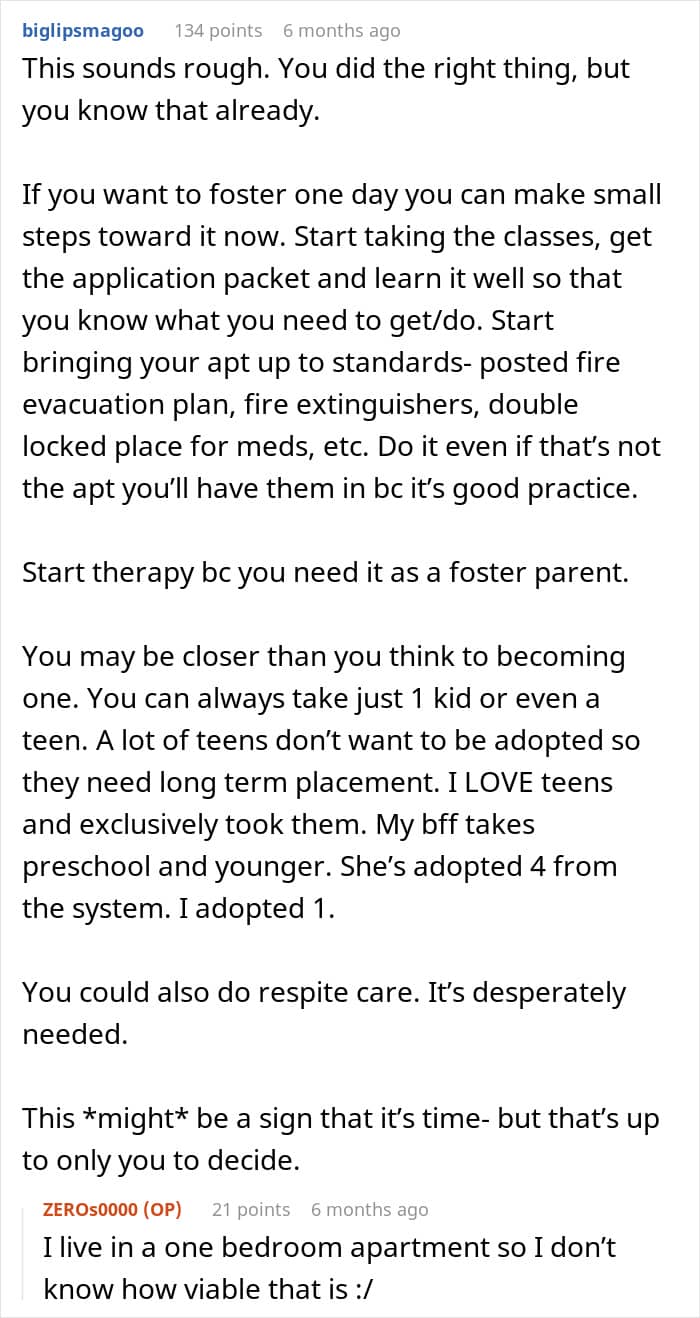
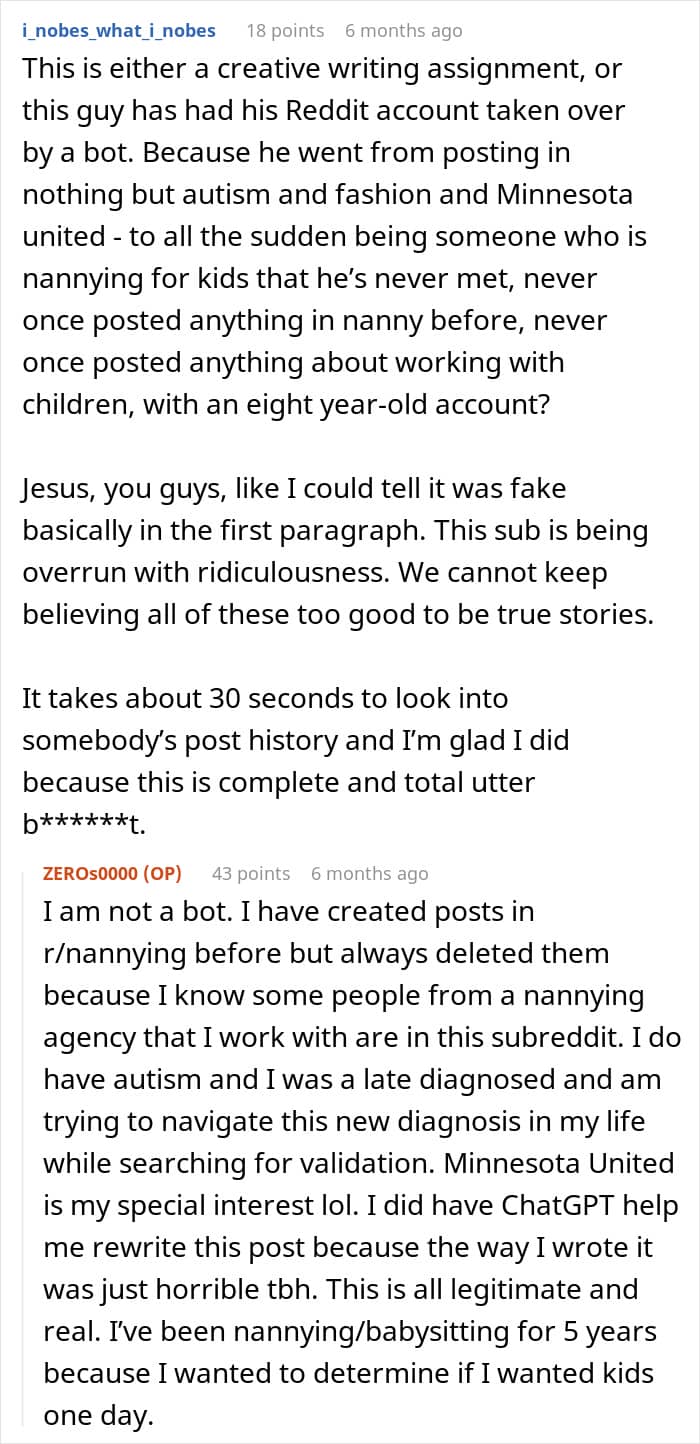
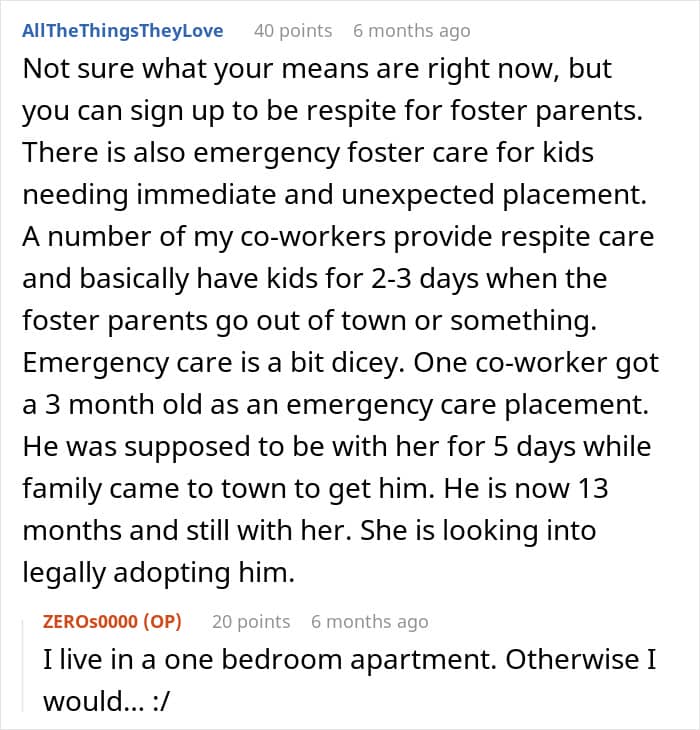

Still, many offered words of support and reassured him that he had done the right thing


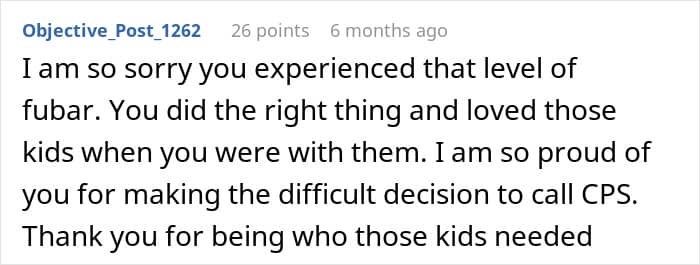




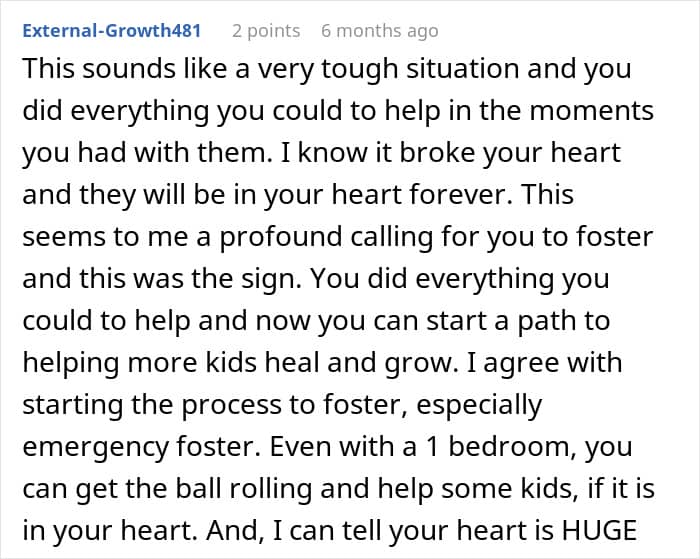

Others chimed in with similar experiences of their own
